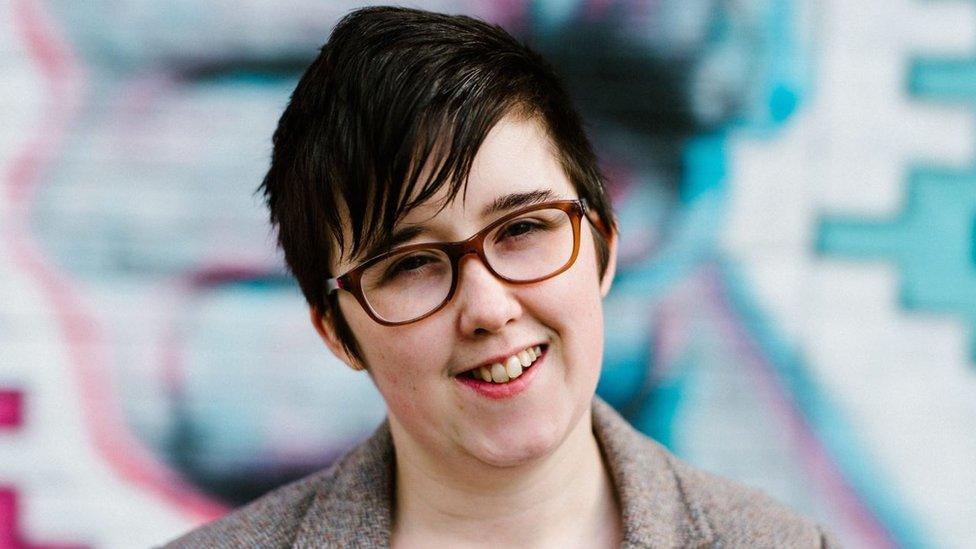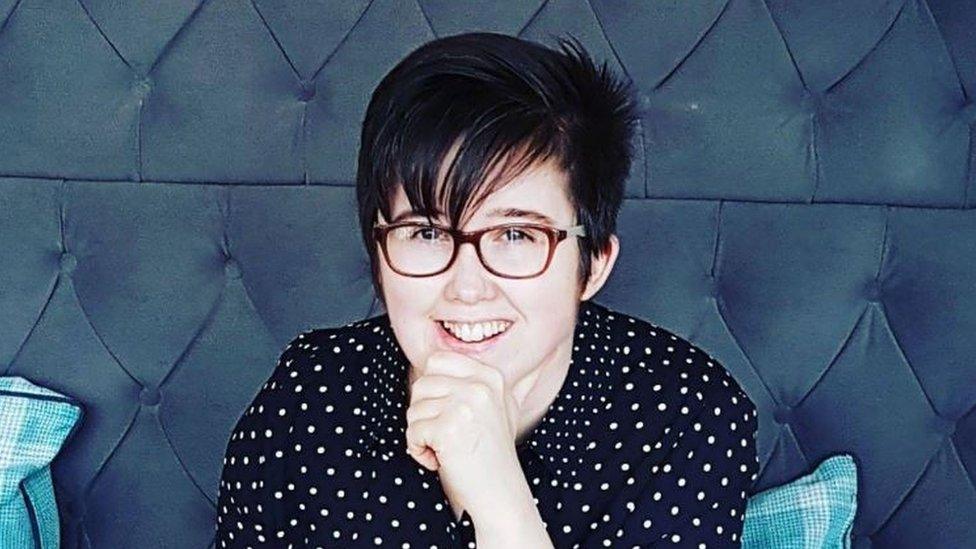Lyra McKee: Man charged with journalist's murder
- Published

Lyra McKee was regarded by many as a rising star in Northern Ireland media circles
A 52-year-old man has been charged with the murder of journalist Lyra McKee in Londonderry.
He is also charged with possession of a firearm with intent to endanger life and professing to be a member of a proscribed organisation.
Ms McKee, who was 29, was observing rioting in Derry's Creggan estate when she was shot on 18 April 2019.
The 52-year-old, from Derry, is due to appear at Londonderry Magistrates' Court on Thursday.
Det Supt Jason Murphy said a number of individuals were involved with the gunman on the night Ms McKee was killed.
"And while today is significant for the investigation the quest for the evidence to bring the gunman to justice remains active and ongoing," he added.
Who was Lyra McKee?
Ms McKee was a writer and campaigner from Belfast who had only recently moved to Derry when she was killed.
She was standing near a police 4x4 vehicle on the night of 18 April 2019 when a masked gunman fired towards officers and onlookers.
Regarded by many as a rising star in Northern Ireland media circles, she had written for many publications, including Buzzfeed, Private Eye, the Atlantic and Mosaic Science.

Ms McKee's death caused widespread revulsion in Northern Ireland and further afield
She was named Sky News young journalist of the year in 2006 and Forbes Magazine named her as one of their 30 under 30 in media in Europe in 2016.
The Belfast woman had signed a two-book deal with the publisher Faber and Faber, with her forthcoming book The Lost Boys due out this year.
According to those who knew her best, the gay rights advocate was someone who "believed passionately in social and religious tolerance".
Her death caused widespread revulsion in Northern Ireland and further afield.
Her funeral was attended by then prime minister Theresa May, Irish PM Leo Varadkar and Irish President Michael D Higgins at St Anne's Cathedral in Belfast.
Fr Martin Magill received a standing ovation when he asked why it took her death to unite politicians.
Days later the British and Irish governments announced a new talks process aimed at restoring devolution.
Northern Ireland's political institutions were restored last month after three years of deadlock.